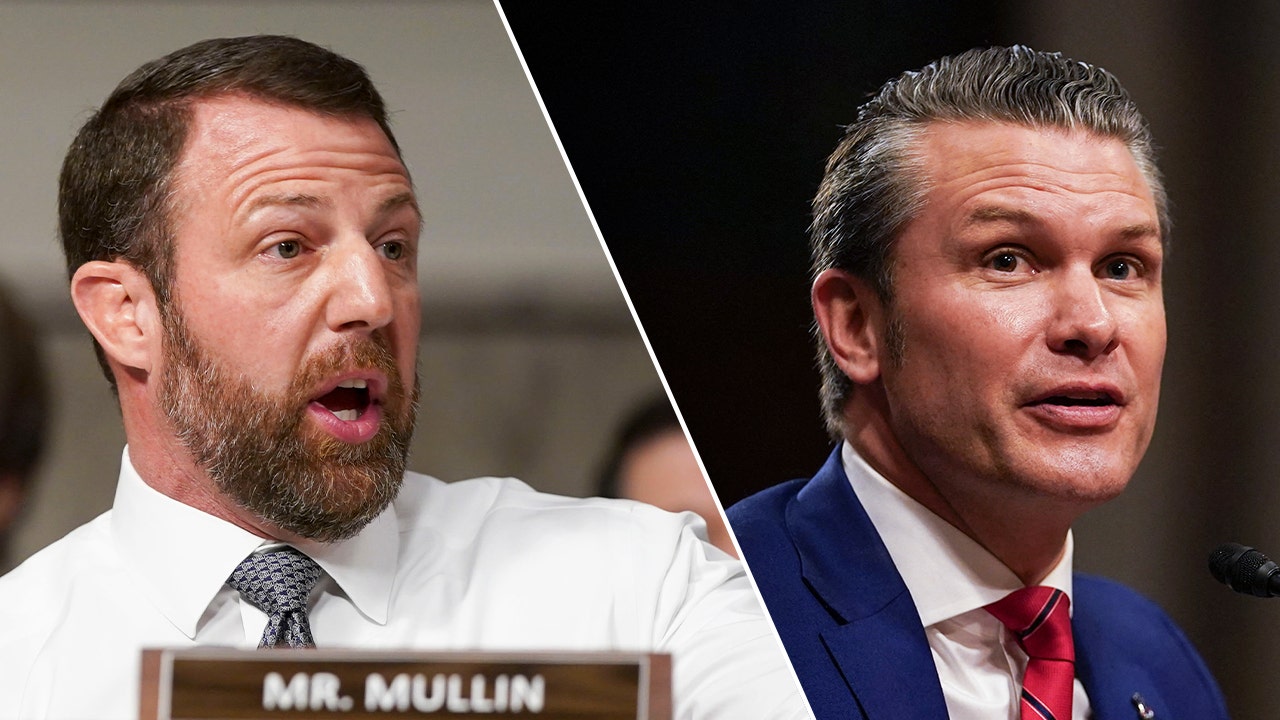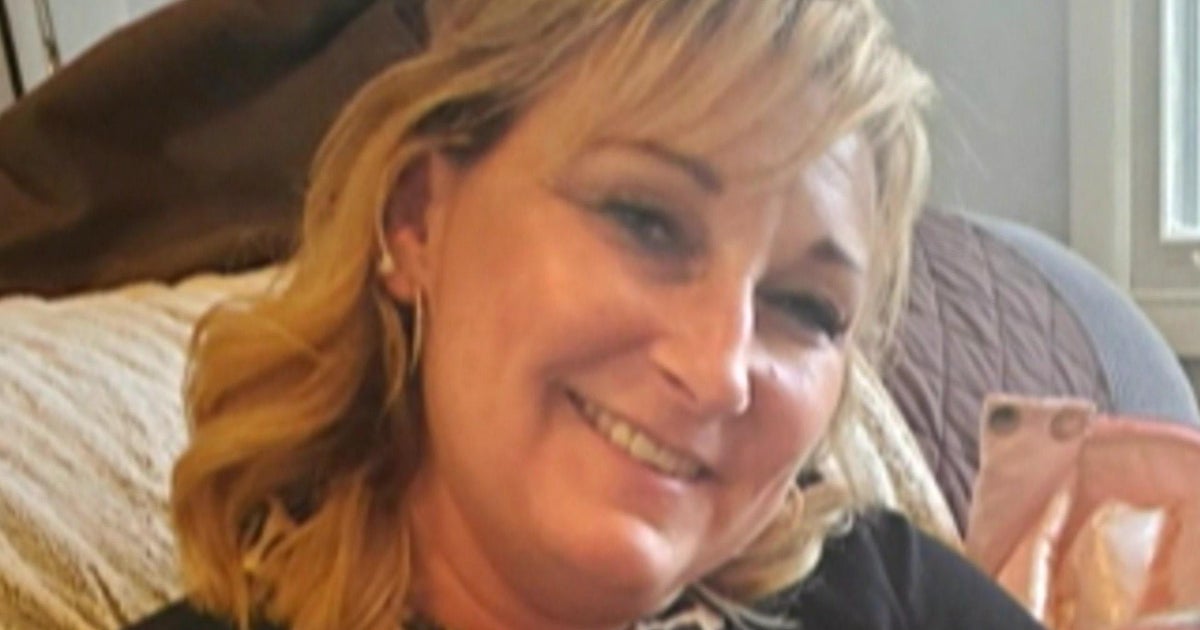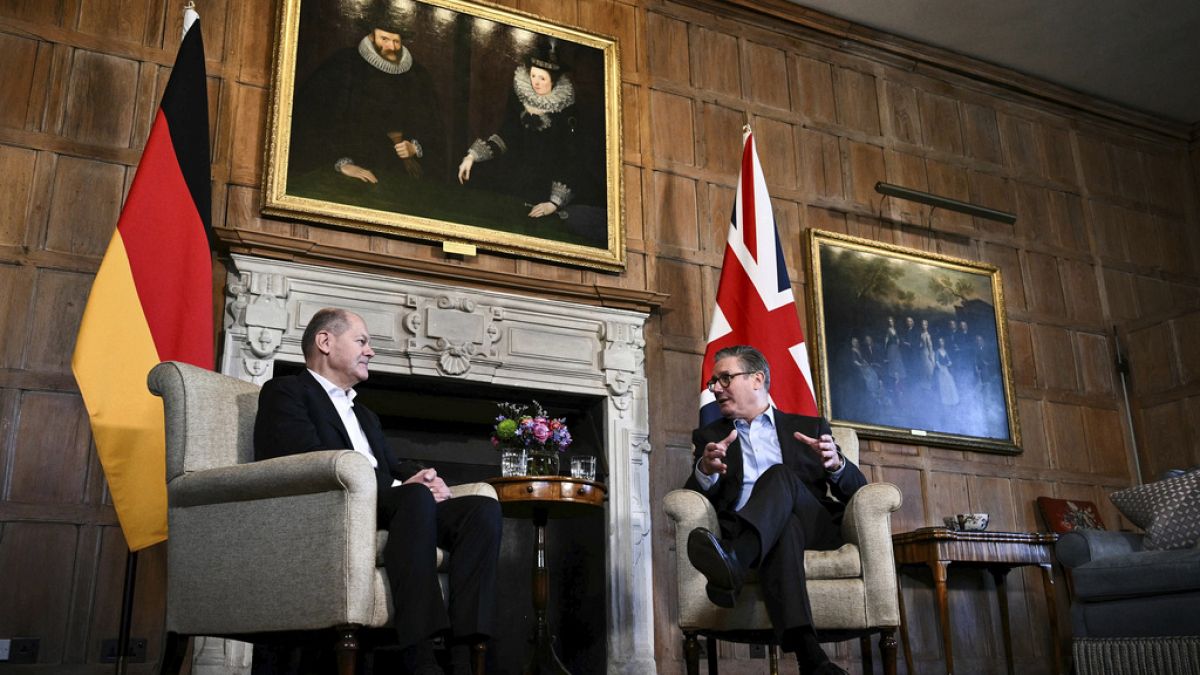Georgia
Biden needs a new approach to Black voters based on Georgia and Michigan, group of strategists says

ATLANTA (AP) — Some top Democrats are worried that a dip in Black voter turnout, along with other challenges, could doom President Joe Biden and his party in 2024.
A group of Democrats is offering a new analysis of the most recent campaigns in Georgia and Michigan, pitching those battlegrounds as models for drawing in more Black voters next year and beyond. They argue that Democratic power players need to think — and spend money — in new ways, going beyond efforts that can be last-minute or superficial as they try to reassemble Biden’s 2020 coalition.
“The days of the symbolic fish fry and one-time church visit are over,” wrote the authors of the analysis by strategists widely credited for helping flip Georgia and Michigan to Biden. “Black voters have always required an approach to voter engagement as diverse as the Black voting coalition.”
Biden has long depended on Black voters — first as a Delaware senator and most notably in the 2020 South Carolina primary, which delivered him a decisive win that led much of the Democratic field to consolidate behind him.
But just 50% of Black adults said they approve of Biden in a December poll by the Associated Press-NORC Center for Public Affairs. That is compared with 86% in July 2021, with the gap fueling concerns about his reelection prospects.
The new report, shared exclusively with The Associated Press and being presented privately to Democratic power players, contends as part of several recommendations that the left must regularly engage all Black voters, including the most reluctant, while amplifying arguments about abortion rights in Black communities.
Said Lauren Groh-Wargo, a leader of the push and longtime adviser to Georgia Democrat Stacey Abrams: “People need to see something different; they need to see you coming to them and asking for their vote in their cultural spaces.”
The authors include veterans of Abrams’ operation and Michigan’s efforts to approve an abortion-rights referendum and re-elect Gov. Gretchen Whitmer. Abrams lost her second bid against Georgia Gov. Brian Kemp, but Democratic Sen. Raphael Warnock beat Herschel Walker to retain his Senate seat, bolstered in part by years of work by Abrams and other organizers.
The report explores why the two states’ 2022 electorates differed from other racially diverse battlegrounds. The contributors want to share their conclusions with the party’s biggest donors and top strategists, including those running Biden’s 2024 campaign. One of Biden’s top campaign aides managed Warnock’s campaign.
Arizona, Georgia, Michigan, Nevada, North Carolina, Pennsylvania and Wisconsin are the seven states that will be critical in deciding the Electoral College next year. Across those states in 2022, Black turnout dropped, on average, about 22% from the 2018 midterms, according to multiple Democratic firms’ data analysis. Lagging Black support for Biden in any three of those states next fall could cut off his path to the required 270 electoral votes.
Michigan’s Black turnout in 2022 was about 90% of its 2018 totals, according to the analysis. But among Black voters under 35, the 2022 turnout was 96% of 2018 levels — notably outpacing other battlegrounds, Georgia included. That bolstered Whitmer’s nearly 11-point victory and the abortion rights referendum, which passed by 13 points. The analysis found Michigan’s Black voters supported the initiative by a higher proportion than any other race or ethnicity; that finding was repeated recently in Ohio’s abortion referendum, authors said.
“We were open to the research that showed us just how much this would resonate in Black communities,” said Michigan Democratic Chairwoman Lavora Barnes, the first Black woman to hold her post and a co-author of the report.
“We made it part of a broader message about rights and freedom,” she added, saying Black Americans, because of their historical experience with oppression, are especially attuned to “having our rights taken away.”
Whitmer, who embraced the nonpartisan abortion-rights campaign, said the lessons must carry forward as some Republicans propose national abortion restrictions.
“My generation assumed that these rights would always be intact for us and our children,” the governor, 52, said recently. “Lo and behold, here we are having to fight over and over again to protect these rights.”
Black turnout in Georgia, meanwhile, was about 92% of 2018 levels; Black voters over 50 exceeded their 2018 marks.
If Georgia’s Black turnout had tracked the 2022 battleground average, the analysis calculates that about 175,000 fewer voters would have cast November ballots. With Warnock winning more than 9 out of 10 Black votes, that shortfall almost certainly would have meant his defeat to Walker, the only GOP statewide nominee who lost in Georgia last year.
And if Black turnout in other 2022 battlegrounds reflected Georgia’s, Democrats almost certainly would have defeated Republican Sen. Ron Johnson in Wisconsin and may have won a North Carolina Senate seat, expanding their narrow majority, the authors argue.
Some recommendations from Georgia are challenging and expensive. Abrams’ operation began a decade ago trying to expand voter participation in Georgia, focusing on Black and other nonwhite residents who rarely or never voted. Now Georgia’s political footprint involves hundreds of paid canvassers, sophisticated digital outreach, voter registration drives and door-knocking campaigns even in non-campaign years.
The report argues that the investment over time creates so-called “super voters” who make the Democratic investment worth it. The document details tactics Georgia and Michigan Democrats have used and that the authors say can be scaled in other states.
The authors note that in 2018, when Abrams first ran for governor, Georgia had more than 1.1 million Black voters deemed “low propensity” and unlikely to vote. After the 2022 election, that has dropped to between 700,000 and 800,000.
Conversely, the “super voter” measure — defined as people who have cast three consecutive general election ballots — has climbed from about 525,000 Black Georgians after 2016 to more than 850,000 after 2022.
Donors and most campaigns, though, still gravitate to traditional turnout models aimed at regular or semi-regular voters. They see the Abrams approach as costing too much money per vote.
“We need other groups out there making contacts with inactive voters because most campaigns just aren’t cut out to do that,” said Preston Elliot, Whitmer’s 2022 campaign manager, who was not involved in the analysis. He complimented figures like Groh-Wargo, Abrams and Barnes but cautioned that the latest effort comes down to resources.
“There are enough tasks out there for everyone to play their parts,” Elliot said. “But ultimately we’re talking about about finite money here.”
___
Associated Press writer Joey Cappelletti in Lansing, Michigan, contributed to this report.

Georgia
Georgia police arrest two opposition leaders at protest

Georgian police arrested two opposition leaders during a street protest against the ruling party on Sunday, a moved quickly denounced by the European Union, which condemned Tbilisi’s “brutal crackdown”.
The Black Sea nation has been rocked by daily mass protests since the Georgian Dream party claimed victory in October parliamentary elections rejected by the opposition as falsified.
Its critics accuse the government of democratic backsliding and of moving Tbilisi closer to Russia.
Prime Minister Irakli Kobakhidze’s announcement on November 28 that his cabinet would not pursue the opening of European Union membership talks with Brussels until 2028 further fuelled the demonstrations.
On Sunday, police detained the leader of the liberal pro-European Akhali party, Nika Melia, and former Tbilisi mayor Gigi Ugulava, a prominent opposition figure, an AFP reporter saw.
The arrests — condemned by the EU’s top diplomat — were made as thousands of demonstrators attempted to block a highway entrance to the capital, Tbilisi.
Melia told journalists that a senior police official had kicked him while in the police station.
Melia’s lawyer said that the politician was “arrested on an administrative offence charge” and released from custody shortly after midnight after signing a written promise to appear in court.
Both Melia and Ugulava had spent years in prison under Georgian Dream’s rule on charges that rights groups have denounced as politically motivated.
Several other people were also detained during the protest, with at least one appearing to have been injured.
The independent TV station Pirveli aired footage showing police brutally beating detained protesters.
– ‘Democracy on the line’ –
Late on Sunday, EU foreign policy chief Kaja Kallas blasted the arrests.
“The brutal crackdown on peaceful protesters, journalists and politicians tonight in Tbilisi is unacceptable,” Kallas wrote on X.
“Georgia falls short of any expectation from a candidate country. The EU stands with the people of Georgia in their fight for freedom and democracy,” she added.
Georgia’s rights ombudsman, Levan Ioseliani, warned in a statement of “instances of mistreatment and excessive use of force by the police against citizens, journalists, and politicians”.
At the protest itself, 22-year-old university student Kote Baramia, told AFP: “All this police violence just proves the government is scared.
“Georgians will not back down, our democracy is on the line.”
The head of the Tbilisi police special task department, Zviad Kharazishvili — sanctioned by Britain and the United States for human rights violations — was heard hurling obscenities at demonstrators.
Demonstrators marched for kilometres towards the parliament building, the site of their daily protests, blocking traffic along Tbilisi’s main avenue.
Before the rally, the interior ministry issued a statement warning demonstrators that blocking the highway “is a criminal offence punishable by up to four years in prison”.
In the first wave of protests that began in late November, riot police used tear gas and water cannon to disperse the crowds, arresting more than 400 demonstrators, according to the interior ministry.
Ioseliani — Georgia’s top human-rights official — and Amnesty International have accused police of torturing those arrested.
– Unprecedented crisis –
Georgian rights activists have denounced what they say is a mounting campaign of intimidation, beatings and arrests against those taking to the streets.
Tbilisi’s security forces and judiciary have faced persistent accusations of repression against the ruling party’s opponents.
The Georgian Dream government faces growing international isolation and mounting claims of democratic backsliding.
On Monday, Brussels suspended visa-free travel to the EU for Georgian diplomats and officials. It cited the adoption of several repressive laws and the “violent repression by Georgian authorities against peaceful protesters, politicians, and independent media”.
Last year, the United States and several European countries imposed sanctions on Georgian officials, pointing to the Tbilisi government’s drift toward Russia and its violent crackdown on protesters and dissent following the disputed election.
Besides the largest anti-government protest movement in its history, Georgia is also grappling with an unprecedented constitutional crisis, as the opposition refuses to enter the newly elected parliament.
Pro-Western President Salome Zurabishvili has declared both the legislature and the government illegitimate.
Her successor — ruling party loyalist and far-right politician Mikheil Kavelashvili — was inaugurated on December 29 following a controversial election procedure, but Zurabishvili has insisted that she remains the legitimate leader.
bur-im/sbk
Georgia
Tide Roll over Georgia 90-69
HUNTSVILLE, Ala. (WAFF) – The 4th ranked Alabama Men’s Basketball team extended its winning streak to five straight with a convincing 90-69 over Georgia in front of a sold out crowd inside Coleman Coliseum on Saturday afternoon.
Mark Sears collected his 13th game of 20 or more points this season, as he led the The Crimson Tide (19-3, 8-1 SEC) with a game high 20 points to go along with six assists and five boards. Grant Nelson secured his team-leading sixth double-double in the win, finishing with 16 points, 10 rebounds and a career high five blocks. Aiden Sherrell (12), Aden Holloway (10) and Chris Youngblood (10) also scored in double figures in the victory.
Georgia (15-7, 3-6 SEC) was led by Asa Newell, who scored 16 points on 6-of-15 shooting, to go along with seven rebounds.
“Unbelievable effort from our guys, really the effort we’ve been looking for outside of the start to the second half. You take that four minutes out, which I wasn’t really happy with that effort, but the other 36 minutes, I thought we played really hard,” Alabama Head Coach Nate Oats said postgame.
“Outrebounded a really good team by 16 and still scored 20 even though we had 20 turnovers. Now, we’ve got to fix the turnovers. Obviously, it’s a major problem, and 12 of those 20 were from three of our fifth-year seniors, which shouldn’t be the case, but I thought those guys kind of set the tone.”
Click Here to Subscribe on YouTube: Watch the latest WAFF 48 news, sports & weather videos on our YouTube channel!
Copyright 2025 WAFF. All rights reserved.
Georgia
Former Georgia 5-star OL emerges at Senior Bowl

MOBILE, Ala. — Clay Webb has a Georgia national championship ring. It’s stuffed in a safety deposit box, where he can’t show it off. He has no desire to do so.
It’s a reminder of lost playing time, a lawsuit and giving up on a career that analysts had thought of as a sure thing.
“Three and a half years ago, I never imagined playing football again,” Webb said. “I kind of thought my dream was over.”
And yet Webb is at the Senior Bowl, a guard outdueling Kentucky’s Deone Walker, a possible first-round NFL draft pick, because of a short drive he made to see if Jacksonville State, the FCS school near his home, had any interest in a former five-star offensive lineman.
Webb was a consensus five-star, rated No. 26 nationally by the 247Sports Composite in the 2019 class, seven spots ahead of Bo Nix and nine spots ahead of Jayden Daniels, both now thriving NFL quarterbacks.
Webb enrolled early at Georgia and played in four games as a true freshman. Then, in early in 2020, Webb was sued as one of three defendants accused of a bullying incident in 2018 at Oxford (Ala.) High School. Another then-student at the high school accused Webb of making him drink a cup with semen in it. The federal lawsuit has still not been resolved, and Webb said Wednesday his lawyers have told him not to comment on it. (The University of Georgia released a statement in 2020 that read: “While we cannot comment on this individual student matter, we review allegations of misconduct by our student-athletes and hold accountable those that do not meet our expectations.” UGA did not respond to messages this week when reached by The Athletic.)
Webb had trouble cracking the Georgia lineup and appeared in just three games the next season. The following season he didn’t play at all, sometimes not even suiting up as Georgia won the national championship.
“I just felt like I wasn’t needed at Georgia,” Webb said.
So he entered the transfer portal after spring practice, but without any real plans. He said he wanted to be with his family, as his grandfather was battling health problems, having his leg amputated. Webb supported his grandfather and mother and mulled his own future.
“I didn’t really know what I wanted to do,” he said. “At that point in my life there was a lot of stuff going on. I was trying to figure things out as a man, what my dreams were.”
Webb decided football wasn’t completely off his mind. He doesn’t remember how long he considered himself retired — “it was awhile” — but at some point the summer of 2022 he made the 25-minute drive to Jacksonville State, just showing up and asking if the Gamecocks had any interest. The offensive line coach was, and still is, Rick Trickett, who has coached nearly 40 future pros in his long career, including the 2013 Florida State national champions. Trickett gave Webb an on-the-spot tryout — in the hallway of the Jacksonville State offices.
“I wanna see you do some snaps first,” Trickett said, according to Webb.
So Webb, wearing blue jeans and whatever shirt he picked that day, made a good impression.
Webb didn’t start until the fifth game of his first season. But once he did, he stuck in the lineup, starting the next two seasons, making Conference USA first team in 2024, and getting another ring — when Jacksonville State won the conference championship. That ring, Webb said, means more to him than the Georgia national one.
“Football means a whole lot to me, and it’s been something special in my life for a whole long time,” he said. “But at that point (after leaving Georgia) I was thinking maybe I’m not good enough, or maybe wasn’t able to do this for a living.”
Rich Rodriguez was Jacksonville State’s head coach until returning to West Virginia after this last season.
“I loved coaching Clay,” Rodriguez said through a university spokesman. “He works really hard, has a hard edge and was one of our most consistent players at Jacksonville State. He has a humble personality, is an outstanding player and will be a real asset to any team in the NFL.”
To that end, Webb got the Senior Bowl invite. An AFC scout attending the Senior Bowl, given anonymity in order to be candid, offered this up to The Athletic’s Dane Brugler on Webb: “He was fine when I saw him in September. But his name kept popping up midseason so I revisited him and thought he was getting better and better. And I think that’s continued here. Good to see him at center during practice. Strong dude.”
Webb was asked if he feels again like the guy who was a five-star.
“No. I believe I’ve learned from that point,” he said. “Not to care about rankings, but who I am as a person, and how better I can get every day.”
(Photo of Webb (left) at the Senior Bowl: Vasha Hunt / Imagn Images)
-

 News1 week ago
News1 week agoHamas releases four female Israeli soldiers as 200 Palestinians set free
-

 Politics1 week ago
Politics1 week agoOklahoma Sen Mullin confident Hegseth will be confirmed, predicts who Democrats will try to sink next
-

 Nebraska1 week ago
Nebraska1 week ago3 years of the Nebraska Examiner: Looking back for inspiration and ahead to growth, with your help • Nebraska Examiner
-

 Culture6 days ago
Culture6 days agoHow Unrivaled became the WNBA free agency hub of all chatter, gossip and deal-making
-

 World1 week ago
World1 week agoIsrael Frees 200 Palestinian Prisoners in Second Cease-Fire Exchange
-

 Technology4 days ago
Technology4 days agoMark Zuckerberg says Meta isn’t worried about DeepSeek
-

 Business4 days ago
Business4 days agoTulsi Gabbard Defended Russia and Syria. Now She Must Defend Those Views.
-

 News2 days ago
News2 days agoHamas frees more Israeli hostages in Gaza as fragile ceasefire holds



















